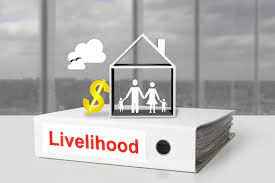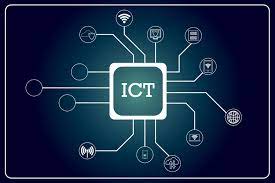- 0
- July 2, 2023
- enviromnet
Environment & Climate Justice
Natural resource and climate change management are critical to the reduction of disasters, achievement of increased household incomes and improvement of quality of life of the population. Agenda 2030 (SDG 12, 13, 14 and 15) sets targets for combating the effects of climate change and sustainable management of water resources, land, terrestrial ecosystems, forests and the environment. Goal 7 of Africa Agenda 2063 calls for putting in place measures to sustainably manage the continent’s rich biodiversity, forests, land and...
- 0
- July 1, 2023
- Gender Justice
Gender Justice
Although Gender equality is enshrined in Uganda’s constitution, the deep socio-cultural barriers manifesting through gender-related norms, perceptions and practices continue to ensure that women’s and men’s opportunities remain unequal. In spite of progress in recent years, particularly in political and decision-making arenas, women still sit on the less favourable side of the gender gap. Pervasive gender inequalities include women’s limited share in wage employment in non-agricultural sectors, lack of control of productive resources like land, exposure to sexual and...
- 0
- June 19, 2023
- Livelihood
Livelihood & Social Security
Poverty and inequality are significant obstacles to achieving sustainable peace and justice in the world today. While Uganda is globally ranked among the poorest and highly indebted countries, the intra-country demographic and socio-economic indicators also allude to similar challenge of poverty and inequality. The greatest socio-economic disparities noted point towards the Youth and Women who are most affected . Geographically, the Uganda Bureau of Statistics figures continue to indicate high and increasing levels of household poverty in Northern Uganda ...
- 0
- May 4, 2023
- ICT Solutions
ICT and Renewable Energy
ICT is a fulcrum of development. It is an accelerator, amplifier, and augmenter of change. It has a huge potential to transform rural communities. Despite its potential, access and utilisation of ICT services across the country is still limited. Similarly, the availability of sustainable (reliable, affordable and clean) energy is critical for economic growth, poverty reduction, as well as the social and cultural transformation of society. The aspiration of Agenda 2030 is to achieve universal access to electricity by...
- 0
- April 11, 2023
- social
Social Accountability
Uganda has a decentralized system of governance which means social services (e.g. health, education, justice, roads, etc.) should be provided at lower level governments. Despite this, the majority of the people are usually unable to hold the government to account for poor or non-delivery of these social services due to corruption, lack of information and limited capacity etc. Under this programme of action the focus of NGS Uganda will be to strengthen the capacity of vulnerable communities (e.g. women, youth,...
- 0
- January 1, 2023
- Development
Institutional Development & Sustainability
NGS’s focus in the next five years 2023-2027 is to develop into a strong Development Organisation. NGS will develop an Institutional Development Plan that will clearly spell out the institutional development needs and priorities. Key among these are; a) strategic leadership and corporate governance; to strengthen board oversight and function; NGS will develop a board charter that will guide board members in the execution of their mandate. Legally, NGS is a fully registered NGO with a mandate to operate...







